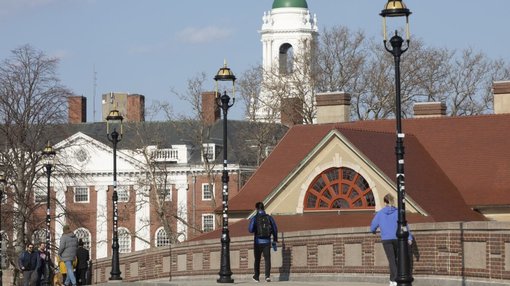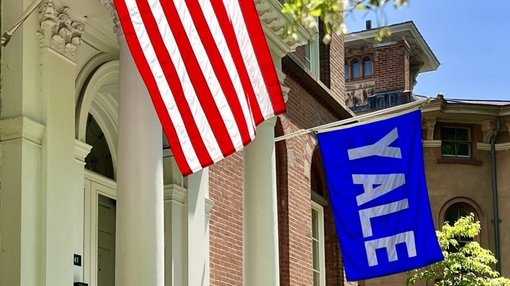Knox Faculty Member Unveils Study Findings in Zambia
Archive by Erudera News Sep 01, 2010

Gail Ferguson’s latest research project unearthed an intriguing and potentially ground-breaking idea for psychologists: People sometimes develop a powerful cultural connection to a country that isn’t their own, even if they’ve never spent time there.
An assistant professor of psychology at Knox College, Ferguson found that lifelong residents of Kingston, Jamaica, often felt connected to the ways of life in both Jamaica and the United States. Despite living more than 500 miles from the United States, many of them routinely watched American movies, listened to American music, had American friends, and considered themselves somewhat American.
“They’re bicultural in terms of having a strong affinity toward the two cultures,” she said. Other Jamaicans in her study, Ferguson added, showed a much stronger preference for their own culture over U.S. culture.
Ferguson’s “Culture and Family Life Study” is the first to document a concept that she and her collaborators call “remote acculturation.” Basically, she explained, that term refers to the theory that “individuals can adopt the cultural identity and cultural behaviors/preferences of a society from which they are geographically separated.”
“I believe this happens through globalization forces,” said Ferguson, who has spent years studying Jamaican families, especially children and adolescents. “It can occur through media, old and new; through tourism; through imports (of U.S. consumer goods). Jamaica imports more goods from the U.S. than from any other country, for example.” She plans to conduct follow-up research to investigate exactly how remote acculturation happens.
Ferguson made two formal presentations about her scholarly work in July at the 2010 biennial conference of the International Society for the Study of Behavioral Development in Lusaka, Zambia. She received two competitive awards, a Young Scholars Travel Grant from the National Science Foundation and an International Travel Award from the American Psychological Association, to attend the Zambia conference. She also received a Knox College grant from the Eleanor Zweifel and Anne Zweifel Taylor Fund for Faculty Travel.
At the conference, Ferguson (pictured above at Zambia’s Victoria Falls) forged a new collaboration with researchers in Zambia and India who will try to replicate her findings by surveying people in those two countries. They will try to answer these questions, she said: “Will we find Americanized Indians living in India? Will we find Americanized Zambians living in Zambia — people who’ve never been to or lived in the United States?”
A New Direction
Ferguson’s study originally was designed to explore a different topic. She wanted to focus on Jamaican immigrants in the United States, examining how their cultural identity changes and how they adapt to life in the United States. To find some answers, she surveyed adolescents and their mothers from three groups of people:
Jamaican immigrant families who live in the United States.
Jamaican families who live in Kingston, Jamaica.
Families from European-American or African-American backgrounds who have lived in the United States for generations.
Working with collaborators from the National Institutes of Health in Maryland and the University of the West Indies in Jamaica, Ferguson surveyed mothers and teenagers about their cultural identity, priorities and how they relate to each other in daily life.
Several Knox College students were “intensely involved in the research,” Ferguson said. They helped her collect and enter data for the study, which was completed in early 2010.
The “Culture and Family Life Study” also represents the first-ever investigation into another new concept in psychology, which Ferguson and her collaborators refer to as “tricultural acculturation.” The researchers found that most Jamaican immigrants to the United States retain their own ethnic culture while also learning to live in two other cultures: European — American and African — American.
Ferguson is preparing two articles, based on her research findings, for submission to professional psychology journals. She also will teach a new course at Knox during the 2011 spring term — Psychology 269: Cross-Cultural Psychology — which will explore the influences of culture on human development and behavior. Ferguson plans to discuss her research findings and methods with students in the class.
“When I, as a teacher, am able to bring excitement to the classroom based on my experiences as a scholar,” she said, “it really enhances the learning experience.”
Founded in 1837, Knox is a national liberal arts college in Galesburg, Illinois, with students from 45 states and 48 countries. Knox’s “Old Main” is a National Historic Landmark and the only building remaining from the 1858 Lincoln — Douglas debates.
Recent Articles
United States
Apr 23, 2024
Canada
Apr 23, 2024
United States
Apr 22, 2024
United States
Apr 22, 2024


